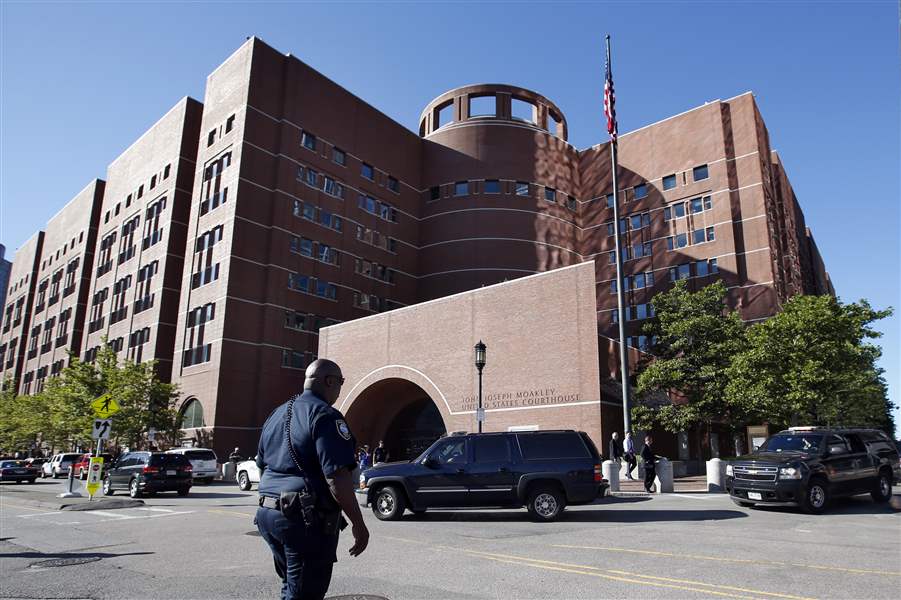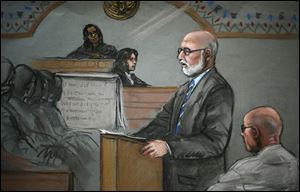
Bulger trial jurors ask about aiding and abetting
8/7/2013
The motorcade carrying defendant James "Whitey" Bulger leaves federal court in Boston Monday, Aug. 5, 2013. Bulger's lawyers used their closing arguments Monday to go after three gangsters who took the stand against the reputed Boston crime boss, portraying them as pathological liars whose testimony was bought and paid for by prosecutors. (AP Photo/Elise Amendola)
ASSOCIATED PRESS

In this courtroom sketch, James "Whitey" Bulger, right, listens to his defensive attorney, J.W. Carney Jr., during closing arguments at U.S. District Court, in Boston, Monday.
BOSTON — Jurors in the racketeering trial of reputed gangster James “Whitey” Bulger asked the judge for clarification on the culpability of someone who helps in the commission of a crime as they started their second day of deliberations today.
The jury asked Judge Denise Casper to explain joint venture, which essentially means being a co-conspirator or a member of a racketeering organization that commits a crime. It also asked about aiding and abetting, which means assisting in the commission of the crime.
Bulger, 83, is accused in a sweeping racketeering indictment of playing a role in 19 killings while allegedly leading the Winter Hill Gang, sometimes as the triggerman and other times helping to plan or orchestrate the slayings, or driving a car used as part of the plan.
Casper had told the jurors during her instructions that prosecutors don’t have to prove that Bulger himself committed the 19 killings, but they may find him guilty if they find he aided in the killings. In response to their question today, she referred them to copies of her instructions.
Jurors also asked the judge if they needed to consider whether some of the charges against Bulger, including murder conspiracy, were brought within that statute of limitations. Casper told the jury that all the charges were brought in time.
The racketeering charge against Bulger includes 33 separate racketeering acts, including each of the 19 killings, plus murder conspiracy acts, extortion, money-laundering and narcotics distribution acts.
In order to find Bulger guilty of the racketeering charge, jurors must find that he committed at least two of the acts within 10 years of each other.
Bulger also faces separate charges of racketeering conspiracy, extortion, money-laundering and weapons charges.
He was one of nation’s most wanted fugitives after he fled Boston in 1994 ahead of an indictment. He was captured in Santa Monica, Calif., in 2011.